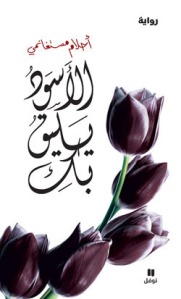 My objective behind the Book Reviews section is to write about the books I liked and/or which deal with some “interesting/useful” topic; and so far I’ve been successful in doing so. The previous book I reviewed was a disappointment but at least it allowed me to highlight one or two aspects about Algerian writers.
My objective behind the Book Reviews section is to write about the books I liked and/or which deal with some “interesting/useful” topic; and so far I’ve been successful in doing so. The previous book I reviewed was a disappointment but at least it allowed me to highlight one or two aspects about Algerian writers.
Black Suits You by Ahlam Mosteghanemi was beyond disappointment. The only good thing about it is that it can be read quickly, especially when you do like me and read only half the words starting from page 200.
I’ve read most of Ahlam’s novels, actually all but Nissian.com. I liked Memory in the Flesh more than Chaos of the Senses and Passer-by a Bed. She’s a good writer and I like her style but her novels are all the same. So I was aware that I was going to read just another variant of Mosteghanemi’s work when I bought Black Suits You, but I didn’t expect the boredom I experienced while reading it. Continue reading

